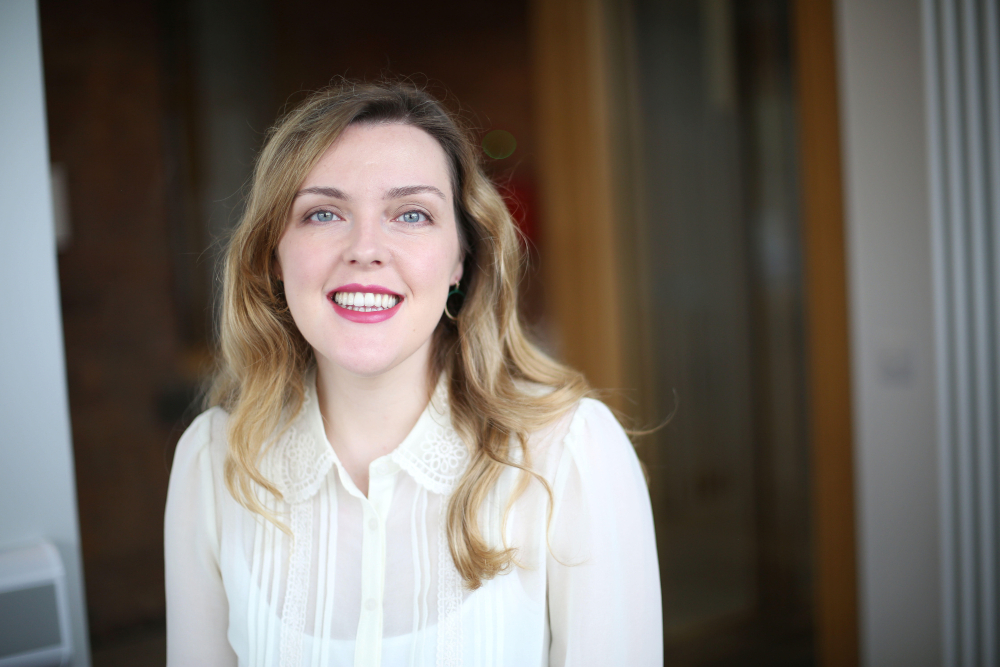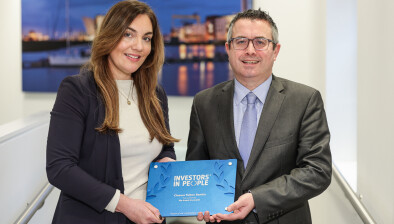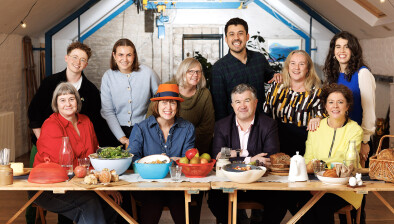The story so far: Niamh Hargan on law and writing

Niamh Hargan
Our sister publication Scottish Legal News spoke to Niamh Hargan about her busy life as a media lawyer and novelist.
Lawyer by day and writer by night — literally — Niamh Hargan juggles a demanding job in media law while penning novels in her spare time.
Hailing from Derry and having studied at Queen’s University Belfast and Edinburgh Law School, she has carved out a busy practice for herself with major film and TV clients at international law firm SmithDehn LLP, after being inspired as an undergraduate by some of the issues raised in the Leveson Inquiry.
Most practitioners find law alone to be harsh enough a taskmaster but Ms Hargan was always determined to write too — and had laboured under the charming illusion that everyone intended to write the novel they had in them.
“I’ve only recently learned that this is not the case. I genuinely thought that everyone would want to write a novel. That has always struck me as a very standard aspiration along the lines of, say, wanting to buy a house,” she says.
Her first novel, Twelve Days in May, was published this year by HarperCollins and, like a latter-day Persuasion, sees boy meet girl, again.
It is described as a “smart, wry, engaging debut” by the Sunday Independent and “A gloriously gossipy read, written with intelligence and style” by the Irish Examiner.
Few of us would have the energy to put pen to paper after a day at the office, but Ms Hargan says that “there are all kinds of ways of motivating yourself to continue to write”.
“One day it might be: ‘who’s going to play this character in the movie?’ Another day you might imagine writing your acknowledgments or composing a dedication to a particular person. Every day you have to come up with all sorts of ways to make yourself do it.”
And, while she lacks one herself, she says on a lighter note that having a “nemesis” is often a good motivator too. “I’d sometimes think how irritated I would be if I never got around to finishing this and X or Y person beat me to it,” she jokes.
As for antecedents that inspire her in her writing, she mentions Jane Austen.
“It’s a cliche but I’m a big Jane Austen fan. As a reader, I’m always drawn in by that blend of social observation, heart, and comedy.” Her favourite Austen novel is, of course, the eternally popular Pride and Prejudice.
Austen may lack the sophistication of a George Eliot or Henry James but Ms Hargan makes the astute point that a novel can be “light without being silly or insubstantial” and that what is easy to read is often hard to write.
“It’s quite difficult, actually, to craft something that is just enjoyable to read. In reality, it would probably have been easier for me as a writer to lean into darkness, in some ways. But to come up with something that seems like it was easy takes quite a bit of effort.”
In 2012, after completing her LLB, and before qualifying as lawyer, she undertook the LLM in Innovation, Technology and the Law at Edinburgh Law School.
Her far-sighted dissertation was innocently entitled Bad Behaviour in the Twitterverse: what are the problems and how do we solve them?. In it, she looked at online harassment, defamation and IP issues — “all subjects on which I now advise regularly”.
“What I would say is I did that masters more than a decade ago but I’m certain that all of the problems are the same today.”
She also recalls taking a class on sports law at Edinburgh and realising what most people seemingly never do: that there are lawyers in every field and that people need not limit themselves to the paths well-trodden when it comes to their careers.
If you are interested in football, “there are lawyers for the FA”; if you are interested in fashion, “there are going to be lawyers in every fashion house”.
“I had no concept of that beforehand. When I was an undergrad, all I could see around me was private practice and if I had asked myself about the ‘different’ ways to be a lawyer, I’m sure I would have thought purely in terms of working for a small high street firm versus working for a big corporate firm.”
Her current work at SmithDehn ranges from the Formula 1 show Drive to Survive to another about the poverty in rural America as well as a documentary about Michael Douglas — among many more: the nature of her work means she watches “a huge range of content”.
She does some contract work, but mainly content and compliance. “I’ll usually read an outline and then I read a script and then I watch a rough cut and then a fine cut,” she says.
“Sometimes I’m feeding back on discreet issues”, for example, filming undercover, secret filming or filming illegal activity.
At other times she may be asking if material is “defamatory, is it invading anyone’s privacy, does it create a risk of infliction of emotional distress?”
She enjoys the variety and the opportunity to work closely with clients. “I really value those relationships; I’m also a genuine lover of film and TV, which helps. With documentaries especially, producers really are coming at this with the best of artistic and journalistic intentions and so to be able to support something that you think is worthwhile is a nice overarching philosophy for your job.”
Ms Hargan, who is qualified as a lawyer in Northern Ireland and New York, said the New York Bar exams were the “most challenging academic experience I’ve ever had; vastly harder than anything else I’ve ever done”. She makes the point, however, that people “can do hard things”.
“It’s not like you want to go to space or you want to be a Formula 1 driver: you’re not trying to do something that nobody before you has ever done, or that only very limited classes of people will ever get to do. So, it’s certainly not that it’s easy but — despite the pass rates for foreign applicants seeming a bit frightening at first — it’s definitely achievable,” she says.
You do, however, have to be more than a little talented to be a successful transatlantic lawyer with one acclaimed novel under your belt — and another on the way.
Ms Hargan’s second novel, The Break-Up Clause, hits bookshelves next June.











